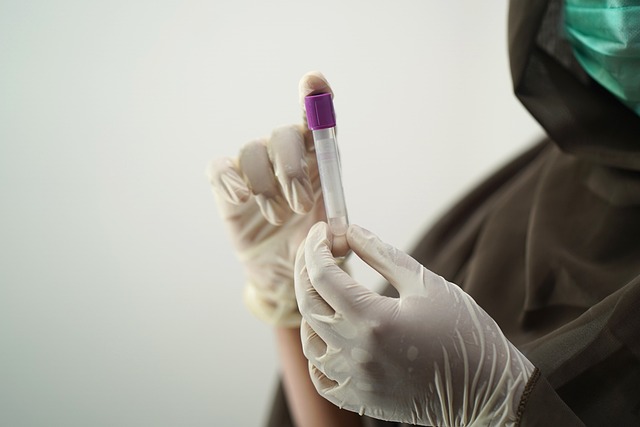Rare but Serious: What You Should Know About Nocturnal Hemoglobinuria
Nocturnal hemoglobinuria (PNH) is a rare blood disorder in which red blood cells break apart prematurely, releasing hemoglobin into the bloodstream and urine. This condition can cause fatigue, anemia, clotting problems, and even life-threatening complications if left untreated. Because its symptoms may mimic other illnesses, recognizing the early signs is critical for timely diagnosis and effective management.

What is nocturnal hemoglobinuria and how does it affect red blood cells?
Nocturnal hemoglobinuria is a genetic disorder that affects the production of red blood cells in the bone marrow. In PNH, the red blood cells lack certain proteins on their surface that normally protect them from destruction by the body’s immune system. As a result, these defective red blood cells are prematurely broken down in a process called hemolysis. This breakdown occurs continuously but can be more pronounced at night, hence the term “nocturnal” in its name.
The destruction of red blood cells leads to a decrease in the overall number of healthy red blood cells in the body, resulting in anemia. Additionally, the breakdown of red blood cells releases hemoglobin into the bloodstream, which can cause various symptoms and complications associated with PNH.
How does dark or reddish urine typically present in PNH patients?
One of the most characteristic signs of nocturnal hemoglobinuria is the presence of dark or reddish urine, particularly in the morning. This symptom occurs due to the increased breakdown of red blood cells during sleep. As the hemoglobin from these destroyed cells is filtered by the kidneys, it can cause the urine to appear dark or cola-colored.
It’s important to note that not all PNH patients will experience this symptom, and its intensity can vary. Some individuals may notice only occasional episodes of dark urine, while others may observe it more frequently. If you consistently notice dark or reddish urine, especially in the morning, it’s crucial to consult a healthcare professional for proper evaluation.
Why is monitoring for blood clots important in diagnosing this condition?
Blood clots are a serious and potentially life-threatening complication of nocturnal hemoglobinuria. PNH patients have an increased risk of developing blood clots in various parts of the body, including deep veins, the liver, and the brain. This heightened risk is due to the activation of blood-clotting factors triggered by the destruction of red blood cells.
Monitoring for blood clots is essential in diagnosing and managing PNH because:
-
It helps identify potential complications early on.
-
It guides treatment decisions, such as the need for anticoagulation therapy.
-
It assists in assessing the severity and progression of the disease.
Healthcare providers may use various methods to monitor for blood clots, including physical examinations, imaging studies, and blood tests that measure clotting factors.
How can fatigue and anemia signal the presence of PNH?
Fatigue and anemia are common and often early signs of nocturnal hemoglobinuria. The destruction of red blood cells in PNH leads to a decrease in the body’s ability to transport oxygen effectively, resulting in anemia. This reduction in oxygen-carrying capacity can manifest as:
-
Persistent fatigue and weakness
-
Shortness of breath, especially during physical activities
-
Pale skin
-
Dizziness or lightheadedness
-
Rapid heartbeat
While these symptoms can be associated with various conditions, their presence in combination with other PNH-related signs should prompt further investigation. It’s important to note that the severity of fatigue and anemia can vary among individuals with PNH and may fluctuate over time.
What role do specialized blood tests play in detecting nocturnal hemoglobinuria?
Specialized blood tests are crucial in detecting and diagnosing nocturnal hemoglobinuria. These tests are designed to identify the specific abnormalities in red blood cells characteristic of PNH. The most commonly used tests include:
-
Flow cytometry: This test measures the percentage of blood cells lacking the protective proteins typically found on normal red blood cells. It is considered the gold standard for diagnosing PNH.
-
Complete blood count (CBC): While not specific to PNH, a CBC can reveal anemia and other blood cell abnormalities associated with the condition.
-
Lactate dehydrogenase (LDH) test: Elevated LDH levels can indicate increased red blood cell destruction, which is common in PNH.
-
Reticulocyte count: This test measures the number of young red blood cells in the blood, which can be elevated in PNH due to the body’s attempt to compensate for destroyed cells.
-
Bilirubin test: Increased bilirubin levels can indicate excessive red blood cell breakdown.
These specialized tests, often performed in combination, help healthcare providers accurately diagnose PNH and monitor its progression over time. Early detection through these tests can lead to timely treatment and better management of the condition.
In conclusion, nocturnal hemoglobinuria is a rare but serious blood disorder that requires careful attention and management. Understanding its symptoms, such as dark urine, fatigue, and anemia, as well as the importance of monitoring for blood clots, can lead to earlier diagnosis and treatment. Specialized blood tests play a crucial role in detecting and monitoring PNH, allowing healthcare providers to tailor treatment plans to individual patients’ needs. If you experience any symptoms suggestive of PNH, it’s essential to consult with a hematologist or other qualified healthcare professional for proper evaluation and care.
This article is for informational purposes only and should not be considered medical advice. Please consult a qualified healthcare professional for personalized guidance and treatment.




